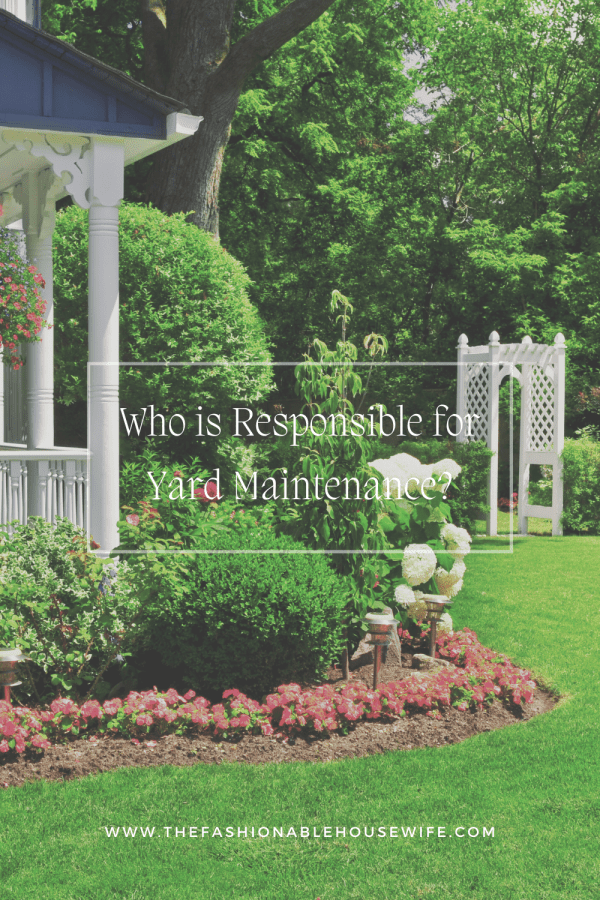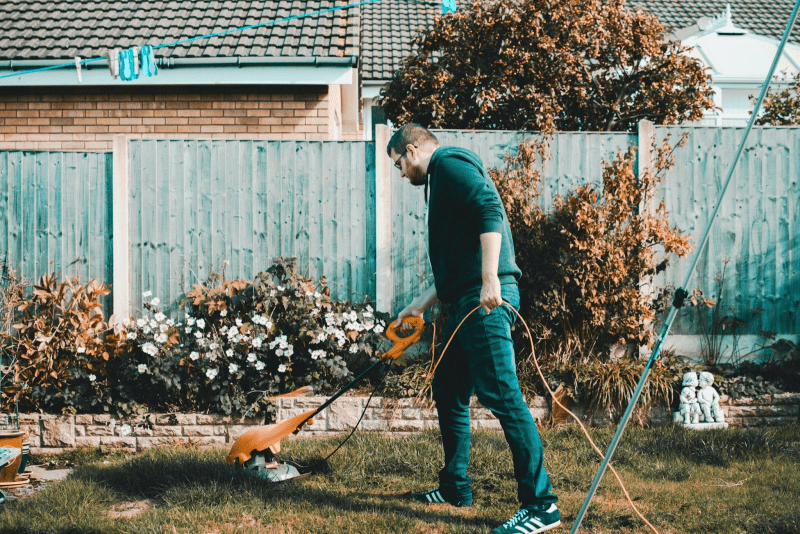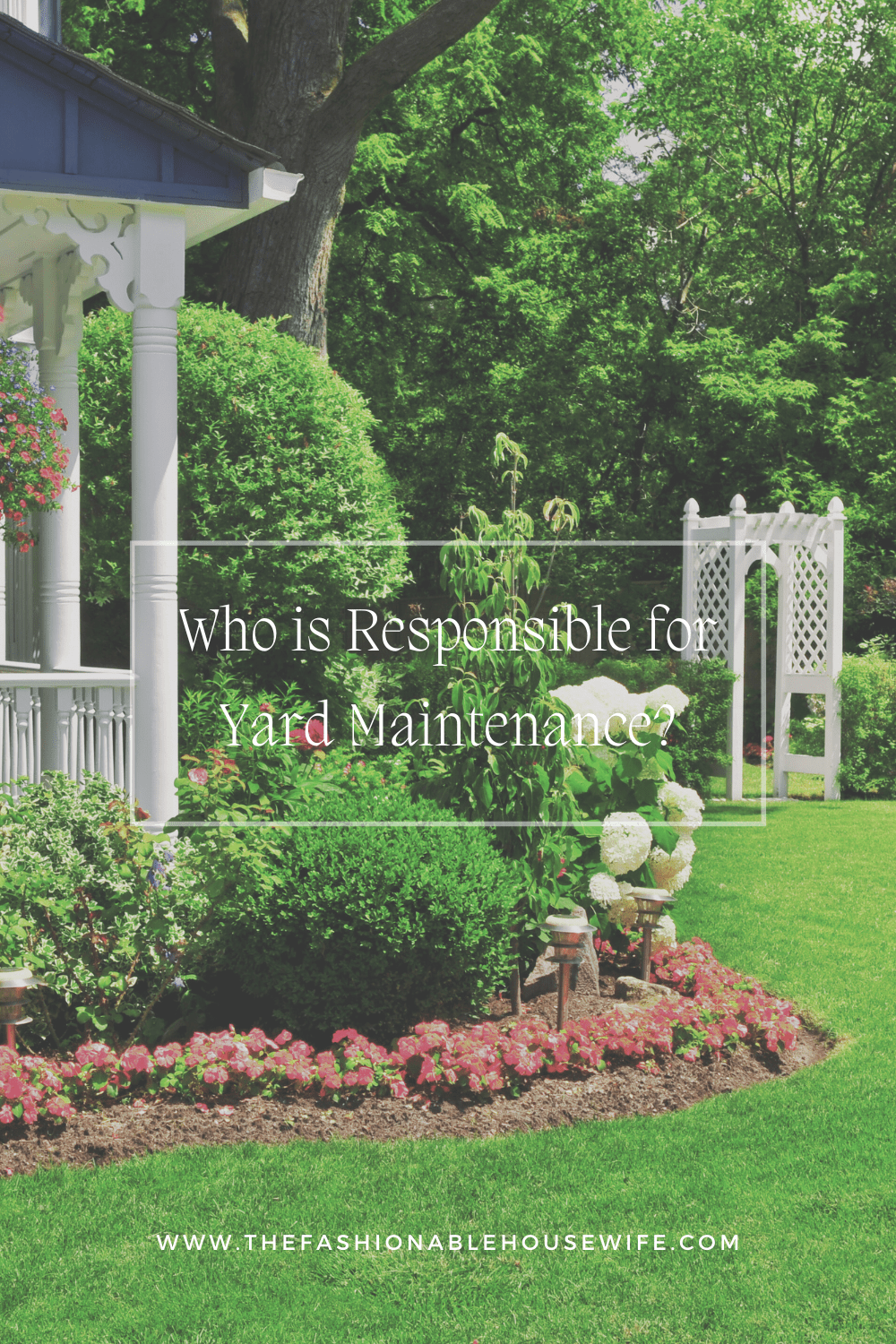Who is Responsible for Yard Maintenance?

There are numerous responsibilities for both landlords and tenants, and it is not uncommon for them to disagree over how to divide these responsibilities. One of the most dreaded tasks is yard upkeep. In rental properties, it can be a little unclear who is responsible for yard maintenance.
It is contingent upon the terms of the lease between the landlord and the renter. What are the landlord’s duties and what are the tenant’s, in terms of yard maintenance? Continue reading as we cover many of the fundamental yard upkeep chores, including which ones are usually the responsibility of the landlord or tenant and which are not.
How Does Yard Maintenance Impact Property?
- Value
An important factor in the overall appearance of your house is your yard. It often serves as the initial observation made regarding a property. Keeping your yard in good condition can greatly increase your home’s worth and appeal. When it comes to selling your house, first impressions count.
For properties with well-kept yards, buyers are frequently willing to spend more. Numerous studies have shown that landscaping can raise a property’s value by at least 10%. For example, healthy grass and a well-constructed irrigation system can raise the total value of your house. You can also protect the property’s value by carefully outlining tenant yard maintenance responsibilities.
- Curb Appeal
Maintaining your yard on a regular basis is essential to improving curb appeal. Potential customers or guests are more likely to form a favourable opinion when they see a well-kept lawn with robust plants. Maintaining your yard’s finest appearance requires routine weeding, pruning, and mowing. Perceived value is increased by a well-kept landscaping, which also conveys that the homeowner takes pride in their home.
- Tenant Satisfaction
Maintaining your yard not only makes your outside area healthier, but it also makes it more appealing to prospective homeowners. Dead plants, pests, garbage, overgrown grass, and weeds can all accumulate and give your lawn an untidy, amateurish appearance. This will deter potential residents from exploring your home further right away.
Beautiful objects, such as a well-kept yard, attract people. Prospective tenants are more likely to get in touch and take a look at available apartments or houses if they can tell you take pride in your property enough to spend money on lawn care services.

Why Landlords Should Clearly Outline Yard Responsibilities?
For landlords, maintaining outdoor spaces is about more than just aesthetics. Meeting legal obligations, preventing conflicts, and ensuring that renters have a secure and functional environment are the main goals. When there is uncertainty about who should do what, problems often arise. Bay Property Management Group Atlanta encourages both parties to discuss and document expectations for yard maintenance. A clear outline of who is in charge of each maintenance work will state any particular requirements for maintaining the garden, and how problems or damages should be reported.
Also, problems and discontent may arise quickly when there is uncertainty regarding who is responsible for the yard and grass. At best, you could have untrimmed bushes, dried-out grass, or HOA complaints. At worst, everyone might experience frustration and resentment, which would make them unsure of what to do next. For this reason, it’s important that both property owners and renters have explicit landscape maintenance agreements.
Furthermore, if there’s a contract that explicitly specifies who is in charge of all yard upkeep, the involved parties know when to bring out gardening gloves and a big sun hat because they know who will be the one mowing the lawn and picking weeds. Lawn maintenance is one of the numerous landlord-tenant disputes where the outline will have the last say.
Shared Responsibilities of Landlords and Tenants

- Maintenance
In most cases, the tenant is in charge of regular garden care, which includes watering, weeding, raking leaves, fertilizing, pruning plants, trimming hedges, mowing, and edging the lawn, and so forth. Unless otherwise specified in the leasing agreement, the tenant is usually in charge of the garden and any outside spaces. The tenant is also in charge of making sure the garden is kept up to the standards established at the start of the tenancy.
The landlord is in charge of handling large gardening projects and repairs, including landscaping, tree pruning, repairing malfunctioning reticulation, major trimmings, uprooting trees, and so on. Any gardening task requiring “specialist skills,” like tree lopping, is also regarded as the landlord’s obligation.
Additionally, the owner is typically in charge of things like reticulation system maintenance, tree care, gutter cleaning, hose and sprinkler provision, and garden planting. Unless the damage was caused by the tenant, the landlord is also liable for repairing any plants or gardening supplies that are harmed while the tenant is occupying the property.
- Pest Control
Resolving a pest infestation, which may include rodents, mice, ants, termites, cockroaches, bees, wasps, possums, nesting birds, spiders, snakes, silverfish, bedbugs, or fleas, is frequently a complex issue. It is usually the responsibility of the person who caused the infestation to be fixed. However, it can be challenging to identify the source of the pest issue.
If the lease agreement makes no mention of pest management, the tenancy laws may be able to help establish who is responsible. Tenants are required by the majority of legislation to maintain the property reasonably clean and to take reasonable care of it. Should they neglect this and a pest infestation ensue, they might be held accountable.
The landlord is accountable for keeping the property sanitary, pest-free, and livable. This usually indicates that, unless the infestation was brought on by the tenant’s bad housekeeping, the landlord is in charge of controlling pests and rodents. It should be mentioned that, regardless of when the outbreak happens, landlords are nearly always in charge of termites and white ants.
- Repairs
Throughout the tenure, landlords are required to supply and keep the property in a decent condition. They are therefore typically in charge of planning and/or funding maintenance and repairs. Tenants, however, are in charge of fixing any damage that they, their kids, pets, or visitors have caused.
Landlords are in charge of making emergency and urgent repairs within the legally mandated time constraints. The definition of an urgent repair varies by jurisdiction, but generally speaking, it refers to repairs that are required to provide or restore a necessary service, to prevent harm to people or property, or to spare the tenant from undue hardship or annoyance.
Most landlords give their property managers the authority to handle their property. However, tenants in most jurisdictions are responsible for arranging for urgent repairs themselves if the landlord is self-managing. If the landlord is self-managing, the tenant is responsible for arranging these repairs and collecting the associated costs from the landlord.
Final Thoughts
A well-kept yard is not only a nice perk, but it is also a shared responsibility between the landlord and the renter and is an integral part of the property’s condition. The likelihood of outdoor areas being a cause of conflict is significantly reduced when responsibilities are well-defined and communication remains open.
For landlords, this entails stipulating explicit conditions in the leasing agreement, recording the garden’s state from the beginning, and being proactive with seasonal inspections. It entails tenants maintaining the place responsibly and seeking advice when necessary. Getting it correctly minimizes disagreements, safeguards deposits, and improves the quality of life on the property.

